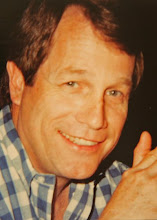
Wandering, confused dementia patients are becoming more frequent "missing person" cases than those of lost children. Numbers bear this out in Virginia, according to a New York Times story by Kirk Johnson. This demographic shift points out the need for retraining of public safety officials, who must "throw out just about every generally accepted idea when hunting for people who are, in many ways, lost from the inside out," writes Johnson.
Wanderers often follow fence or power lines, and tend to be drawn toward water. Calling out their name often does no good, since the people have often forgotten their names. But learning about their life can be helpful "because Alzheimer’s disease, the leading cause of dementia, works backward, destroying the most recent memories first.
"Wanderers are often traveling in time as well as space."
Johnson's article tells of World War II veterans traveling great distances believing they needed to report to base or the front lines, and of a man in Virginia who was lost for days until searchers learned he had been a dairy farmer long ago. The man had headed for a cow pasture not far from his home, believing it was time for the morning milking.
A retired FBI agent, Robert Schaefer leads two-day training sessions on how to look for dementia wanderers, who may take evasive action to avoid detection or be paranoid about authority figures, due to their disease. Schaefer cared for his wife for 15 years at home through her journey into Alzheimer's.
Wanderers often follow fence or power lines, and tend to be drawn toward water. Calling out their name often does no good, since the people have often forgotten their names. But learning about their life can be helpful "because Alzheimer’s disease, the leading cause of dementia, works backward, destroying the most recent memories first.
"Wanderers are often traveling in time as well as space."
Johnson's article tells of World War II veterans traveling great distances believing they needed to report to base or the front lines, and of a man in Virginia who was lost for days until searchers learned he had been a dairy farmer long ago. The man had headed for a cow pasture not far from his home, believing it was time for the morning milking.
A retired FBI agent, Robert Schaefer leads two-day training sessions on how to look for dementia wanderers, who may take evasive action to avoid detection or be paranoid about authority figures, due to their disease. Schaefer cared for his wife for 15 years at home through her journey into Alzheimer's.
This 4-minute video,
is worth watching.


No comments:
Post a Comment